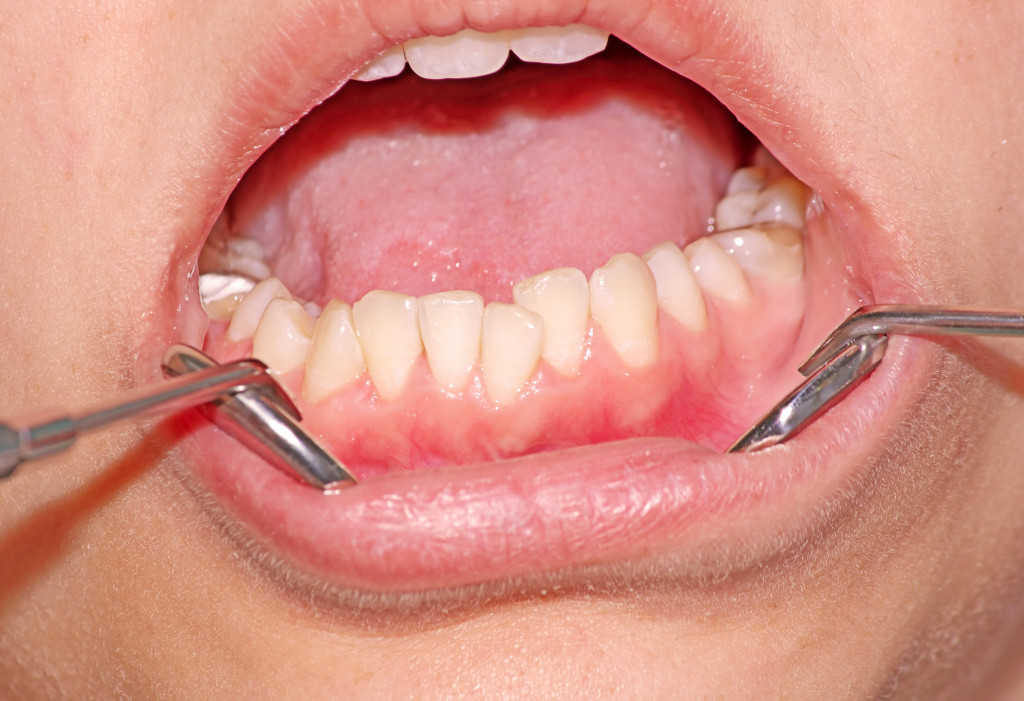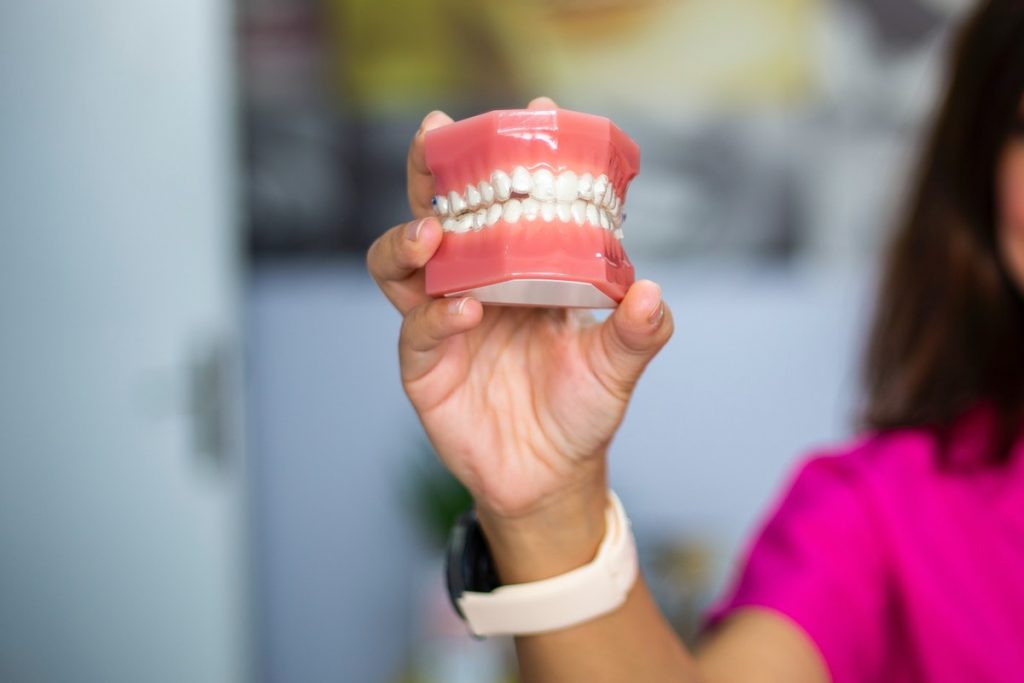• Worn-out dentures often cause denture discomfort, sore spots, and food particles stuck underneath the denture.
• To reduce this discomfort, use denture adhesives, rinse with salt water, and take anti-inflammatory medication.
• If necessary, get your dentures adjusted by a dentist or choose soft foods while getting used to them.
• If dentures are uncomfortable, consider replacing them with implant-supported dentures, a fixed bridge, or partial dentures.
As someone who wears dentures, you know that they are not always the most comfortable appliance. Even if you have had them for years, sometimes your dentures can cause discomfort. Here are the common reasons dentures might become uncomfortable and what you can do about it.
Common Causes of Denture Discomfort
You may wake up one day and find your dentures uncomfortable. This is often due to several factors, including:
Worn-out Dentures
Your dentures may become worn down over time due to normal wear and tear. This can lead to pain and discomfort when eating or speaking. A denture’s life span is usually about five to seven years, so if you have had your dentures for longer than this, it may be time to get them replaced. Additionally, if your dentures are made from low-quality materials, they may break down more quickly, leading to further discomfort.
Sore Spots

If your dentures are too big or small, they may create pressure points and sore spots inside your mouth. Sore spots usually occur where the denture rubs against your gums and causes irritation. This can lead to pain, discomfort, and difficulty eating and speaking.
Food Particles Under the Denture
Food particles can get lodged underneath the denture, causing irritation and pain in the gums. These particles often get stuck in the grooves and crevices of the denture, causing inflammation. Especially if you like eating crunchy or chewy foods, this may be an issue you encounter.
Reducing Denture Discomfort
If your dentures are causing discomfort, there are several ways to reduce it. These include:
Use Denture Adhesives
Denture adhesives are specially formulated creams or powders to help secure your denture and reduce slipping and sliding while wearing them. These products can also help create a tighter seal between your gums and the base of the denture, which helps reduce pain and discomfort caused by pressure points on the gums. Ask your dentist which adhesive is right for you before using any product.
Rinsing with Salt Water
Saltwater rinses can help reduce inflammation in the gums and relieve any soreness caused by poorly fitting dentures. Mix one teaspoon of salt into a cup of warm water and rinse your mouth after each meal or snack.
Taking Anti-Inflammatory Medication
If inflammation is causing your discomfort, taking over-the-counter anti-inflammatory medications such as ibuprofen can help reduce swelling in the gums and alleviate any associated pain. However, check with your doctor before beginning any new medication regimen. Some medications may interact negatively with other medications or conditions you previously prescribed.
Get Your Dentures Adjusted

If your dentures are becoming increasingly uncomfortable, your best bet is to head back to the dentist and adjust them. An experienced dentist will be able to assess the fit of your dentures and make any necessary adjustments to fit better and be more comfortable. It’s also a good idea to get regular checkups at least once a year to catch any issues with your dentures before they become too painful or uncomfortable.
Choose Soft Foods
When you’re getting used to wearing new or adjusted dentures, it’s best to stick with soft foods such as soups, mashed potatoes, macaroni and cheese, yogurts, applesauce, scrambled eggs, fish, rice dishes, cooked vegetables like carrots and squash, etc., until you feel more comfortable wearing them. Eating soft foods will help reduce pressure on the gums when chewing, which will help reduce discomfort associated with new or adjusted dentures.
Getting Rid of Your Dentures
If dentures are getting too uncomfortable, consider removing them altogether. There are several options to replace dentures with a more permanent solution. There are implant-supported dentures, which are implant dentistry services that use implants to secure the denture. Here are your options:
- Implant-supported dentures. This is a procedure where several dental implants are placed in the jawbone to secure a denture. This permanent denture solution can provide more stability than removable options and potentially improve oral health.
- Fixed bridge. A fixed bridge is when two or more natural teeth are connected with a pontic, or false tooth, and is cemented into place. This type of denture solution is permanent and cannot be removed.
- Partial dentures. Partial dentures replace one or more missing teeth in the arch but still leave some of your natural teeth remaining. These dentures usually consist of a metal or acrylic base with replacement teeth attached to it and clips that help keep the dentures in place.
Dentures are a great way to improve your smile, but they require care and maintenance. However, if your dentures are becoming increasingly uncomfortable, talk to your dentist about ways to make them more comfortable. This way, you can live with a confident and beautiful smile without the pain and discomfort of ill-fitting dentures.
